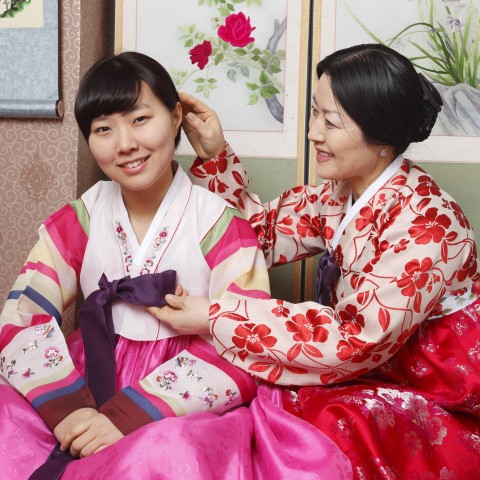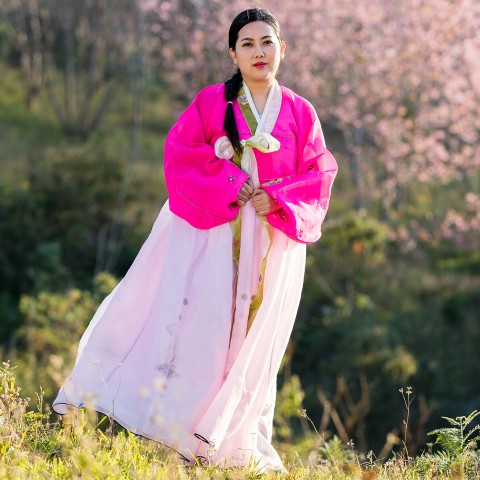
Every country has its own unique culture and South Korea is no exception. Understanding Korean culture and traditions is important if you’re planning to travel, study, or work in South Korea. This knowledge will also help you acquire the more advanced levels of the Korean language, since many idioms and old sayings are based on Korean culture. Finally, learning about South Korean culture will help you better understand the beliefs and customs of South Koreans, broaden your worldview, and make it possible to build closer relationships during your stay.
Before we dive in, here are four interesting Korean culture facts:
1. You must take off your shoes when you enter someone’s house.
2. Korean women have little problem showing off their legs, but are very conservative about showing cleavage.
3. Lots of Korean people, especially younger Koreans, can speak decent English.
4. Korean men are expected to pay for dinner when on a date.
And this only scratches the surface! Keep reading for more practical information about the culture of South Korea. By the way, we encourage you to check out “Korean Etiquette: 7 Do’s and Don’ts in Korea” and “10 Korean Hand Gestures You Need to Know” on our blog to learn even more Korean culture specifics.
Now let’s dive in!
 Table of Contents
Table of Contents
- Values and Beliefs
- Family and Work
- Food
- Traditional Holidays
- How Our Website Can Help You Master Korean
1. Values and Beliefs

A- 유교사상 (yugyosasang) – “Confucianism”
유교사상 (yugyosasang), or “Confucianism,” has had a major influence on Korean culture.
It emphasizes the importance of harmonious human interactions and promotes the idea that relationships are unequal, defined by hierarchical roles. Confucianism formally believes that when you accept and respect inequality, it becomes a lot easier to maintain healthy, harmonious relationships with the people around you.
In Korean culture, Confucianism plays a large role in how people interact with each other. Here are just a few examples:
- Families are more important than individuals.
- Men and women have separate roles.
- Loyalty is an important trait to have.
- Elders should be respected and obeyed.
However, Confucianism is slowly fading away and the younger generations are becoming more and more Westernized and individualistic. Moreover, younger Koreans reject the traditional idea of gender roles and promote gender equality.
B- 철학과 종교 (cheolhakgwa jonggyo) – “Korean Philosophies and Religions”
In South Korea, all of the world’s major 종교 (jonggyo), or “religions,” peacefully coexist.
A few popular religions and belief systems in South Korea include:
- 기독교 (gidokgyo) – “Christianity”
- 불교 (bulgyo) – “Buddhism”
- 유교 (yugyo) – “Confucianism”
- 이슬람 (iseullam) – “Islam”
불교 (bulgyo), or “Buddhism,” arrived in Korea in 372, and since then, many Buddhist temples have been built across the country. 유교 (yugyo), or “Confucianism,” was adopted as the state ideology during the Joseon Dynasty and became extremely influential to the Korean culture.
천주교 (cheonjugyo), or “Catholicism” was introduced to Korea in the late 조선시대 (joseonsidae), or “Joseon Era.” During that time, people who followed the Roman Catholic religion were subjected to persecution, but the religion continued to spread across the country.
To learn more on the topic of religion in South Korea, you can check out the following materials on KoreanClass101.com:
- Religion (vocabulary list)
- Buddha’s Birthday

2. Family and Work
Family and work are two key components in any society, so learning about Korean customs and beliefs concerning these topics will help you more easily integrate into the culture.
A- 가족 우선주의 (gajok useonjuui) – “Family Always Comes First”
Korean culture values 가족 (gajok), or “family,” even placing family before the individual.
For example, Koreans believe that every member of the family is connected and that the actions of one family member reflect on the entire family. Therefore, if someone commits a crime or does something wrongful to another person/group/society, it will put shame on that person’s entire family. This belief is influenced by Confucianism, which emphasizes the importance of putting family first, showing loyalty, and respecting elders.
If you’re interested in learning more about Korean family culture, check out our blog articles:
- “In your family, are you the Youngest? Oldest? Middle? (Korean birth order)”
- “Korean Honorific Titles: Oppa, Unni, Hyung, Nuna & More”
You can also study our useful Korean family-related vocabulary lists:
B- 개인 업적보다 팀워크 (gaein eopjeokboda timwokeu) – “Teamwork Over Individuality”
Korean culture has clear hierarchical structures in the workplace. The higher your position, the more power and respect you will have. Therefore, the work environment can be very tough for those who are new to the workforce or company, since they’re at the bottom of the hierarchical structure. Their opinions won’t carry as much weight in team meetings, it will be difficult to say “no” to managers, and colleagues who have been working at the company for many years may purposely put them in difficult situations just for being new.
Also, Korean companies value “teamwork,” so team building events are very important to them. These events could focus only on your team members, though sometimes the whole company will participate. Usually, the group will go to the countryside together and stay there over the weekend. For younger employees, there will be parties in the evening as well.
Here are a few useful Korean work-related vocabulary lists for you to review:

3. Food
한국의 음식 문화 (hangugui eumsik munhwa), or “Korean food culture,” is a crucial topic to study before heading over to South Korea!
쌀 (ssal), or “rice,” is the main staple of the Korean diet. It’s usually accompanied by side dishes such as various kimchis, vegetables, and soups.
김치 (gimchi), or “kimchi,” is one of the most popular Korean dishes. Kimchi is fermented cabbage with a mix of vegetables and spicy pepper powder. Popular kimchi vegetables include cucumbers, radishes, and green onions. Beef and pork are very expensive in Korea, so the Korean diet usually focuses more on vegetables and fish.
In Korea, it’s common to fight over who pays the bill at a restaurant, but people who are older or of a higher status are usually expected to pay. When at a restaurant with friends, you’ll have to act appropriately depending on the atmosphere. Younger people prefer to either ‘go dutch,’ or pay for one meal and expect his/her friend to pay for the meal next time.
Feeling hungry yet? Here are some useful food-related materials on our website:
- What’s Your Favorite Korean Food?
- Food – Fruits and Vegetables
- Famous Korean Food
- Most Useful Words and Phrases for Reading Food Packaging
- Top 10 Must-Try Korean Street Foods in Seoul
4. Traditional Holidays
There are a few 한국의 전통 명절 (hangugui jeontong myeongjeol), or “traditional Korean holidays,” that you should know about before your visit.
Koreans believe their ancestors are protecting their family, so it’s very important to keep their ancestors’ memorial days. Several times a year, family members gather together and celebrate their ancestors. This is commonly done on the Korean ‘Thanksgiving’ holiday 추석 (chuseok) and on 설날 (seollal), or “New Year’s Day.”
Korean women (especially daughters-in-law) cook traditional Korean food and bring it to the ancestors’ graves. Traditionally, men are not allowed to be in the kitchen because Korean mothers don’t like seeing their sons help their wife cook and wash dishes. However, this traditional notion is slowly changing. Nowadays, the celebration happens less frequently, families rarely gather together, and men more actively help in the kitchen.
Interested in learning more about traditional Korean holidays? We have several lessons and blog posts we think you’ll love!
- New Year’s Day
- National Holidays
- Chuseok: How to Celebrate Korean Thanksgiving Day
- Korean Culture – Chuseok/Hangawi Festival
- Bucheonim oshin nal: The Buddha’s Birthday in Korea
- Seollal, the Korean New Year’s Day!

5. How Our Website Can Help You Master Korean
In this Korean culture overview, you learned about the most crucial elements of life in South Korea, from Confucianism to popular dishes. If you would like to learn even more about Korean culture, we recommend visiting our Korean Culture Class lessons. They will take you on a journey through South Korea with an assortment of tips, cultural points, and practical insight. Here are a few lesson series we recommend:
- Culture Class: Essential Korean Vocabulary – contains 25 lessons that will help you build up some essential vocabulary and phrases
- Culture Class: Essential Korean Vocabulary Season 2 – talks about PyeongChang in depth
- Culture Class: Essential Korean Vocabulary Season 3 – teaches about South Korean pop culture
- Culture Class: Essential Korean Vocabulary – contains 25 lessons about Korean culture and basic vocabulary
We hope you enjoyed this lesson! If you have any further Korean culture questions, please leave a comment below and we’ll get back to you. Good luck with your Korean studies and have a great day!










